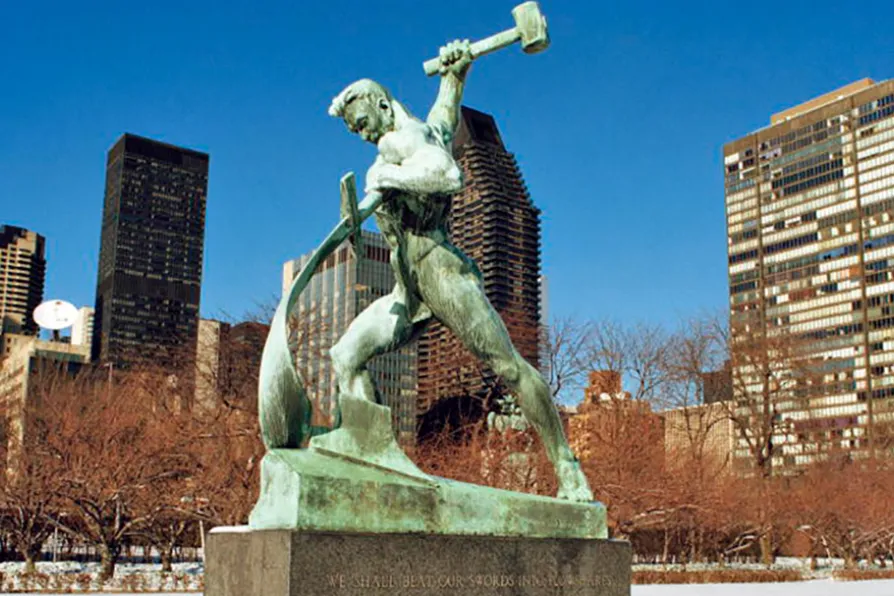RITA DI SANTO draws attention to a new film that features Ken Loach and Jeremy Corbyn, and their personal experience of media misrepresentation

 [Evan Schneider/Creative Commons]
[Evan Schneider/Creative Commons]
WHEN delegates from 50 nations signed the newly created UN Charter in April 1945 in San Francisco, its explicit mission was to keep “succeeding generations from the scourge of war.”
The ceremony took place in late June and was immediately torpedoed — as it would be on many an occasion in the future — by cynical US doublespeak. On August 6 and 9 Hiroshima and Nagasaki were obliterated.
The UN general assembly met for the first time in London in January 1946 and 13 years years later in December 1959, at the height of the cold war, the government of the Soviet Union presented the UN with a bronze sculpture, Let Us Beat Our Swords into Ploughshares, by Soviet artist Evgeny Vuchetich, creator of the Stalingrad memorial.

The colonial mindset behind the governance of the UN is the reason for its inertia when it comes to conflict resolution, argues ROGER McKENZIE – but can China’s Global Governance Initiative point in a new direction of global equality?

As we mark the anniversaries of the Hiroshima and Nagasaki bombings, JOHN WIGHT reflects on the enormity of the US decision to drop the atom bombs

LYNNE WALSH tells the story of the extraordinary race against time to ensure London’s memorial to the International Brigades got built – as activists gather next week to celebrate the monument’s 40th anniversary











